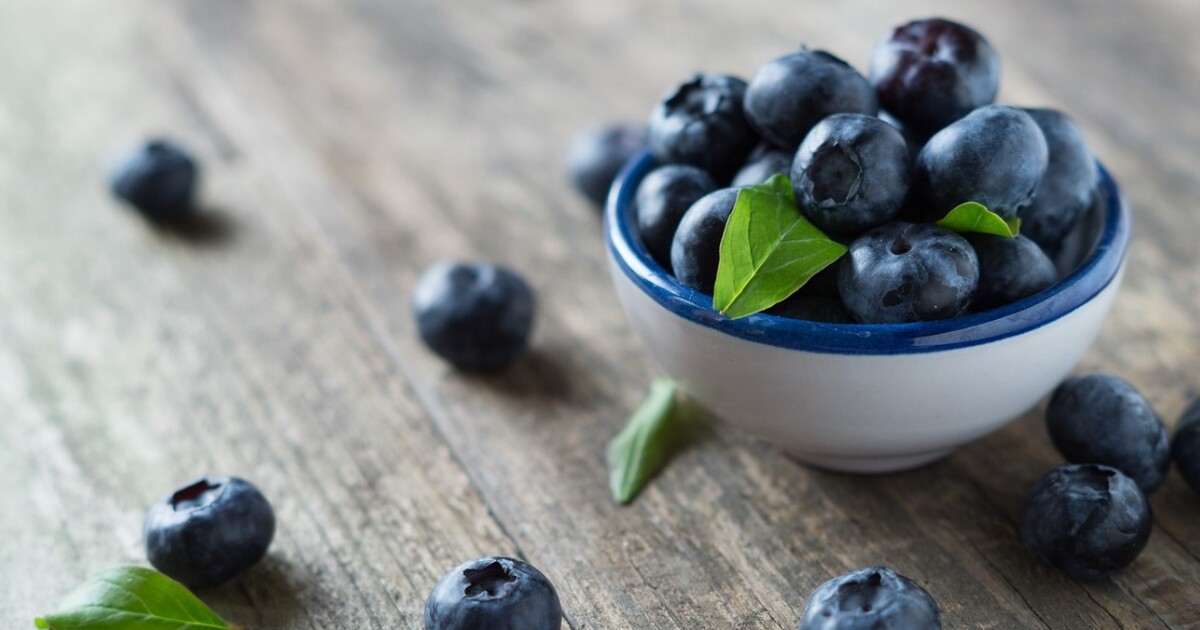Globalization and the Death of Blueberries
You better eat as many blueberries — and as often — as you can. Experts predict the blueberry is facing extinction.
February 9, 2025

Until recently, I never “got” blueberries. In both senses. They just came across as highwayman cloak-colored beads of innocuous sweetness not worth spending money on.
But I have been converted. Not by the regular berries of hotel breakfast buffets positioned next to the big bowl of yogurt, nor by the contents of an uncrushable plastic punnet from a supermarket chain.
A Damascene moment
My Damascene moment was provoked by watching a discerning young person steadily demolish with focused determination a bulging sack of blueberries — each one almost as large as an Elizabeth Taylor pearl.
They came from Trader Joe’s, the more affordable American supermarket chain owned by the same German family that separately owns similarly reasonable Aldi. The blueberries he generously proffered burst with a flavor that had been so elusive in the store varieties I had bought elsewhere as to have made no impression.
Get them while you can…
If you are a fan of blueberries, you had better eat as many as you can, as often as you can. Experts predict the blueberry is facing extinction.
The blueberry is a native American fruit, introduced into Europe in the 1930s. There are two varieties — the wild lowbush and the cultivated highbush.
U.S. blueberries account for 40% of the world’s supply. Strains of Erysiphe vaccinii, a devastating fungus originating in North America, are spreading rapidly across California, Mexico, Peru, China, Portugal and Morocco — all major blueberry-growing regions, wiping out the plants as they advance.
The pros and cons of globalization
Globalization has resulted in many sweeping developments, some good, some less so. Such is progress.
We have had access to a wider range of products and produce, at far lower prices, increased economic growth and higher incomes (though the percentage of households noticing any effect is not recorded), cheaper natural resources and labor markets and other categories providing material for combative TV talk shows.
On the globalization downside, for the multitudes who are suffering a downside, is the increased gap between rich and poor, job loss, wage stagnation, worker exploitation, deforestation, reduced biodiversity, increased pollution — and the spread of plant disease such as the blight now threatening nutrient-dense blueberries.
Malcolm Bradbury, assistant professor of plant pathology at North Carolina State University, points to humans as responsible for the spread of this blueberry blight: It is not hard for insouciant nurseries to export live plants that might bring with them destructive pests and diseases that quickly spread locally.
“We are watching this global spread happen right now, in real time.” Other variants of the fungus are affecting wheat, hops, grapes and strawberries.
Not a new threat
The threat of virus spreads has long been on our radar. Years ago, I took a raucous and endless Australian coach trip across the Nullarbor from Perth to Melbourne with a bunch of senior citizens. Their anecdotes, recited without pause over the coach’s open mike during the 24-hour trip, all involved nuns and camels and today would have had them tossed unceremoniously out onto the tarmac.
When we approached the state line between Western Australia and Victoria, we all had to climb down from the coach and dump any fresh fruit, vegetables, cheese or other foods into a giant bin before we could proceed — no laughing matter. Stringent rules were in place to prevent the spread of pests, diseases and weeds (but not filthy jokes).
A little history
They were right to take the power of a blight seriously. In the United States in the late 1800s, around 7,400 acres of land were turned over to the growing of blackcurrants, white currants and gooseberries, transplanted from Europe.
Then the blackcurrant bushes spread a fungus that killed white pine trees. These trees were the backbone of the nation’s timber industry. So, in 1911, the government eradicated every bush and outlawed the commercial growth of blackcurrants. Now, slowly, they are being re-introduced.
Thomas Jefferson introduced the European sweet chestnut into the United States in 1773, importing numerous trees for his Monticello plantation. Yet these days, chestnut trees are rarely to be found. In the early 1900s, a blight in trees imported from Asia killed nearly 4 billion trees across the United States in 40 years.
What about Europe?
In 2013 in Puglia, the Southern Italy region once supplier of nearly half of Italy’s olive oil, Xylella fastidiosa was found to have infected and then killed 60 million olive trees.
In February last year, a Xylella subspecies which has annihilated U.S. vineyards but had been contained inside the United States, was found in Puglia vines.
In the EU, data shows that dozens of newly introduced disease outbreaks are detected every year. Even as farmers and scientists struggle to contain previously introduced pathogens, new ones have come in, at an average rate of 70 over five years.
The climate change dimension
With the increased temperatures of climate change, the problem will get worse. Depending on where they originate and where they land up, the pathogens travelling on produce can die or thrive.
Xyllela fastidiosa which decimated defenseless Italian olive trees did not affect Costa Rican coffee plants. But it can cause diseases not just in olive trees and grapes, but in almonds and citrus, too. Citrus trees in Portugal face another threat — Trioza erytreae, a sap-sucking pest.
Across Europe, a Candida pathogen is infecting celery, parsnips, parsley and most especially carrots.
Candidatus “Liberibacter solanacearum” is affecting potato crops in Latin America, in Texas, Mexico and Nebraska. Along with carrots, it has also been found in tomato plants and pepper plants.
In each of these, it has been detected in Texas, Nebraska, Colorado, Kansas, Wyoming, New Mexico, Arizona, Nevada, California, Idaho, Oregon and Washington State. It has also been detected in Mexico, Guatemala, Honduras, Nicaragua, and El Salvador — and in New Zealand.
Closing the world down
Globalization was touted as opening us up to exchanges of products and experiences and travel. Instead, large aspects of it are closing the world down.
As a teenager, I travelled for a while on the World Passport created by a free-spirited friend. It was a hand-stapled booklet that contained my photograph, and my signature scrawled over a postage stamp.
Now, if there is a Cuba stamp in your passport, do not think about getting into the United States. If your passport has an Israel one, do not expect to travel to Iran, Kuwait, Lebanon, Libya, Syria or Yemen.
If you live in Russia, do not expect automatic entry into Belgium, the Czech Republic, Denmark, Estonia, Finland, Iceland, Latvia, Lithuania, the Netherlands, Norway and Poland — though with appropriate funds, you will probably be welcomed with open arms into the money-laundering capital of the world, London.
Back to blueberries
Back to blueberries: They freeze well, so you could do so while they are still available. If they do disappear, bilberries — much smaller and known in the United States as huckleberries — are a good substitute.
While I may have been seduced by Trader’s Joe’s blueberries, I am still more than happy to ignore them in favor of blackcurrants, raspberries, blackberries and mulberries — all of which have so much more personality, in my humble opinion of course.
Takeaways
If you are a fan of blueberries, you had better eat as many as you can, as often as you can. Experts predict the blueberry is facing extinction.
Strains of Erysiphe vaccinii, a devastating fungus originating in North America, are spreading rapidly across the globe, wiping out plants as they advance.
Globalization has resulted in many sweeping developments, some good, some less so. Such is progress.
Globalization was touted as opening us up to exchanges of products and experiences and travel. Instead, large aspects of it are closing the world down.
Blueberries freeze well, so you could do so while they are still available. If they do disappear, bilberries — much smaller and known in the United States as huckleberries — are a good substitute.

